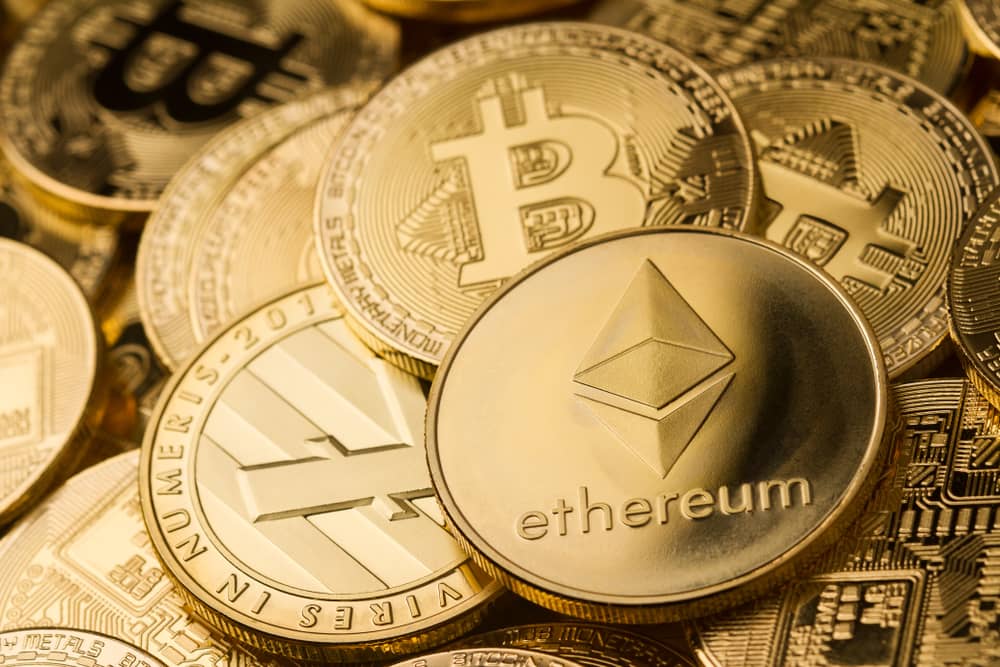On 10 January, after just over a decade of rejections, the Securities and Exchange Commission approved 11 applications for the spot price of bitcoin.
Applications first appeared in front of regulators in 2013 when the price of bitcoin stood at $100. In the interim, the price of bitcoin swelled during the pandemic as retail adoption skyrocketed and investors increasingly looked to hedge against inflation.
More recently, the anticipation of a spot bitcoin approval pushed bitcoin close to the lofty heights it saw during COVID-19, and the digital asset now stands at $57,000.
Crypto advocates viewed spot bitcoin ETF approvals as a seminal moment for the digital asset, solidifying its place as a large-scale investment, amid hopes hoards of institutional investors would follow.
A month and a half on, the approval is continuing to prompt fresh questions about bitcoin’s place in an investor’s portfolio and its underlying value.
Does it have a place in a portfolio?
As investors increasingly look for alternative, non-correlated assets to diversify, crypto assets can, arguably, serve a role in a diversified multi-asset portfolio.
Alberto García, head of asset allocation at ACCI Capital Investments, which has invested in the 21Shares Bitcoin ETP (ABTC), said bitcoin exposure can be used to generate alpha that is uncorrelated with traditional assets.
“We use long and short options so that we can mitigate the effects of investing in bitcoin,” García told ETF Stream.
“Because the risk profile is higher, we will never put a big weight in portfolios,” García added.
Finally, from a portfolio construction point of view, he noted the risk profile needs to be measured to avoid crashes, and so “a stress test scenario is useful when allocating bitcoin to a portfolio”.
While some fund selectors see the asset as giving their portfolios an extra punch, other investors are less sold on the benefits.
Mark Northway, investment manager at Sparrows Capital, told ETF Stream said investors are only allocating to crypto because the price is rising, not because digital assets are cheap.
“Cryptocurrency is the ultimate incarnation of the mentality that says price does not matter,” Northway said.
“One of the challenges I like to put to investors who are buying bitcoin is what is your plan? There are many people who have a long-term play. If you ask why the price of this is going to continue to move up over the long term, there is not an answer that anyone can give you.”
A clearer case on the horizon?
Persisting scepticism and hesitancy to allocate might be largely underpinned by the view that bitcoin – and more broadly cryptocurrencies – are not income-producing assets.
“Pure coins are problematic from an investment perspective,” Northway continued.
“They are the ultimate traded instrument, in that the price is a function of buy demand and sell demand without any long-term use for the asset that is being traded.
“That makes it an extremely dangerous investment proposition. Logically, price and value will tend for any assets to converge over time and they can only converge in this case on zero.”
Extending this view, Janel Jackson, global head of ETF capital markets and broker and index relations at Vanguard, said: “With equities, you own a share of a company that produces goods or services, and many also pay dividends.
“With bonds, you get a stream of interest payments. Commodities … but not gold … are real assets that meet consumption needs, have inflation-hedging properties, and can play a role in certain portfolios.”
As neither bitcoin or gold are income-producing assets, their value is derived using a similar hypothesis.
As Thomas Schuessler, global co-head of equities at DWS, explained: “A piece of art is also worth what other people are willing to pay for it. The same is true for gold as it does not create an income. Bitcoin falls into the same bucket for me.
“You cannot value it based on its income stream, but you could value it relative to other asset classes or based on its own history.”
Since gold and bitcoin are touted by many as sharing similarities, comparing the two assets can help attribute the historic value characteristics of gold to bitcoin.
For example, they are both a hedge against inflation as there is a fixed amount of both, and they usually have relatively low correlations to equities and fixed income.
Most importantly though, they act as a store of value outside of traditional systems such as governments or central banks.
James Butterfill, head of research at CoinShares, said gold’s “additional value is to do with its perceived value as a store of value”.
“Bitcoin fits in that category as well. I do think the investment case is this emerging store of value,” he added.
The potential for bitcoin to supplant gold as a store of value could make a rigid investment case, however, the length of time that they have been around is a key difference to consider.
Schuessler said valuing bitcoin is significantly more challenging than valuing gold, given bitcoin’s mere decade of existence compared to gold’s history.
In addition to the historical differences between bitcoin and gold complicating their comparisons as a store of value, Northway added gold’s value is determined by traditional financial systems, and bitcoin’s value will not be accepted by the same institutions, complicating the comparison further.
“Ultimately, the reason why gold is accepted to have a value is because central bankers around the world have agreed that that is the case.”
Final word
“Bitcoin will always succumb to this question about intrinsic value,” Butterfield said, and looking more broadly, pointed out that the argument for intrinsic value is a “hugely subjective thing”.
Cryptocurrencies are a nascent asset class and so fund selectors remain torn on whether bitcoin has a place in a diversified portfolio. From a fund selector’s perspective, bitcoin is either a useful means to generate alpha or simply a futile investment.
Northway concluded, “It is not an underlying investment case for the long term. It is a traded instrument and it is without an intrinsic value. As an investment allocation, leave it alone.”
This article first appeared in ETF Insider, ETF Stream's monthly ETF magazine for professional investors in Europe. To read the full edition, click here.




